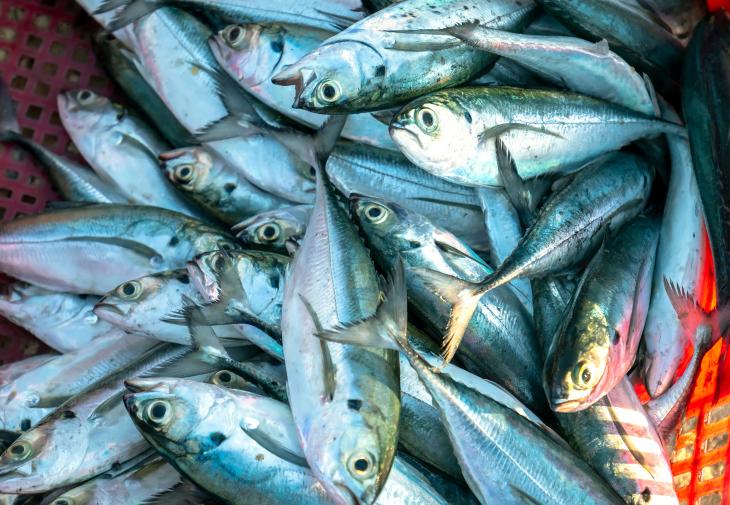Environmental Change as a Public Health Risk
Ecologist and epidemiologist explores the relationship between declines in bushmeat, fisheries management and human nutrition
Wild-caught seafood and bushmeat, a catchall phrase for the meat of wild animals in the tropics, are key sources of protein that people have eaten for thousands of years. While most of the world now relies on agriculture and domesticated animals, rural people in places like Madagascar and West and Central Africa rely on wild seafood and bushmeat for sources of vital nutrients that are harder and harder to catch. If the wild protein sources go away, foods that are nutritionally inferior will likely replace them and add to a cascade of health challenges that already exist, explained ecologist and epidemiologist Dr. Chris Golden.
In his SESYNC seminar, Golden, assistant professor of planetary health and nutrition at Harvard T. H. Chan School of Public Health, described his work on a range of topics that fall in the realm of planetary health, which focuses on the health impacts of human-caused disruptions of Earth’s natural systems. He discussed analysis of how environmental change affects one-fourth of the global burden of disease and that increases in ecosystems services and ecosystem management leads to improved human health. He has studied the relationship between biodiversity loss and ecosystem transformation, specifically the availability of bushmeat and health in Madagascar, and the availability of wild-caught fish and health and in other countries of the Global South.
Golden explained how global fisheries are a pillar of human nutrition. Fish provides protein, calories, and critical micronutrients like iron, zinc, omega-3 fatty acids, and vitamins. More than a billion people depend on subsistence fisheries for these micronutrients and to meet their basic health needs, and yet 93% of fished stocks are fully or over-exploited.
In his seminar, Dr. Chris Golden described trends that are leading to mass fisheries declines and how they affect people. Further, coral bleaching and increases in sea surface temperatures means that fisheries near the equator will move toward the poles. Together, overfishing, coral bleaching and increases in temperatures deprive humans that rely on seafood of critical nutrition resources, he said.
“This is a moment in time characterized by the Anthropocene where we are dominating every ecosystem process on Earth. Whether we are thinking of the climate cycle, the biogeochemical cycles, trends in wild population abundances, these different transformations that are rapidly unfolding right now, the moment is now to understand what types of impact they might have,” said Golden. “A lot of work I do characterizes the discrete human health outcomes of environmental change so that we can best manage natural systems to avoid these types of changes.
The value of bushmeat and wild fisheries are “hugely under-appreciated” as non-agricultural sources of food for the most vulnerable people around the world, he said. It’s not captured in census data and so looking at this is critical to understanding the most vulnerable populations.
Golden has studied important cultural differences of the Malagasy population to better understand the value of traditional ecological knowledge. Western views of science don’t tell the whole picture, he said. Understanding the Malagasy’s spiritual roots of the land and their perception of history and future are critical to understanding environmental and social aspects, as well as decision making.
In his work in Madagascar, Golden has brought the findings to policy makers, Ministry of Health, the presidency, and non-governmental organizations (NGO). He’s discussed how much people rely on wild food sources for protein, which are underlying the stability and well-being of their population. Golden says he has been successful so far in reaching out to NGOs and to organizations such as Catholic Relief Services, who address humanitarian aid in through rice, beans, and peas but also seek to address root causes that are driving instability, such as conserving biodiversity.
Golden says that the moment is now to understand what types of impacts fish and bushmeat declines might have. “All of my bushmeat work, seafood work and efforts to explain methods filling the demand for animal sources foods an aquaculture proliferation is angling at how to feed planet of 9B people in the context of having all of our natural systems crumbing beneath our feet,” he said.
